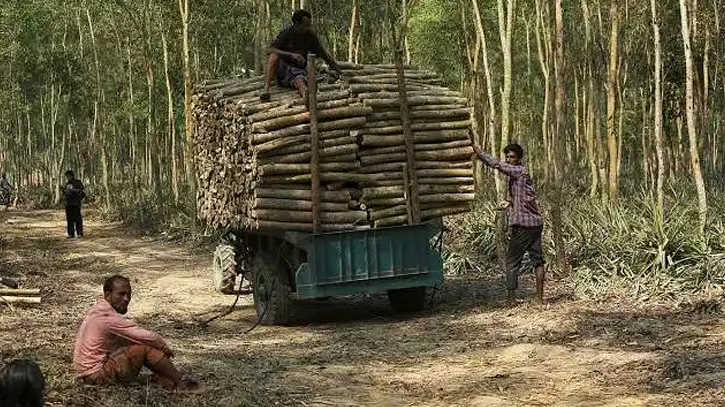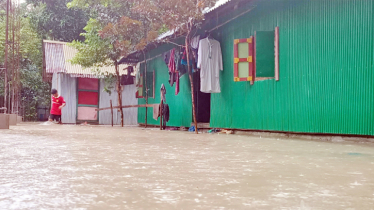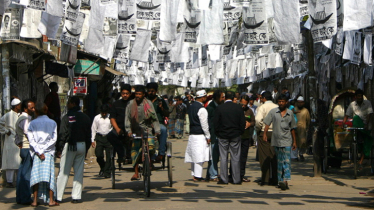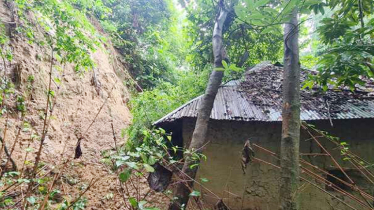
Photo : Collected
Eco-terrorists, illegal loggers, wildlife poachers, and encroachments on forest lands are regular phenomena in the country. The news, photos, and video footage often surface in the mainstream media about the forest crimes.
A few days ago, a photo appeared on the front page of The Daily Messenger, and the caption read: “The Forest Department demolished an artificial lake that had been created by flooding about 2,500 acres of land in the Borohatia forest of Lohagara, Chattogram, on Saturday. Upon hearing the news of 100 farmers who had been affected by the dam, I arrived at the scene.”
The good news is that the Forest Department has constituted a nine-member expert committee to probe into whether the illegal construction of an artificial lake has caused any ecological harm to the forest, with recommendations to find steps to ensure that such incidents do not repeat again.
The probe committee has been given seven working days to submit the report.
Well, hundreds of probe reports by government agencies in the last five decades have never seen the light of day. An influential person rubbing shoulders with the political elites in the corridor of power has created an artificial mud wall to create a lake for fish farming, which also does not have permission.
With a string of illegal activities, the alleged eco-terrorist flooded a reserve forest. The day labourers worked for three months in broad daylight to construct a mud wall dam, while the forest officials, guards, and staff remained conspicuously silent.
When hundreds of angry farmers were agitated and the media brought the issue to the front page in early February, the Forest Department was shaken.
The farmers complained that the artificial lake had dried up their farmlands. The lifeline of a source of water from a natural spring on the hills, which was used for irrigation, was blocked by erecting the mud wall.
Not to anybody’s surprise, the construction of the mud wall dam began in January 2021 and was completed in March and the fish farm began its business.
The farmers have complained about the issue with different government offices but were ignored.
The forest officials explained that they had taken action after the issue came to their attention. However, the officials claim that several varieties of 5 lakh trees died due to waterlogging.
The fish farm was constructed in a reserve forest, which is a restricted area, and flooded a big area that is 200 feet long, 20 feet wide, and 100 feet deep.
Farmers argue that the eco-terrorists who damaged the forest and ruined their agricultural produce were involved in illegal activities in connivance with the officials and staff.
Messenger/Fameema








